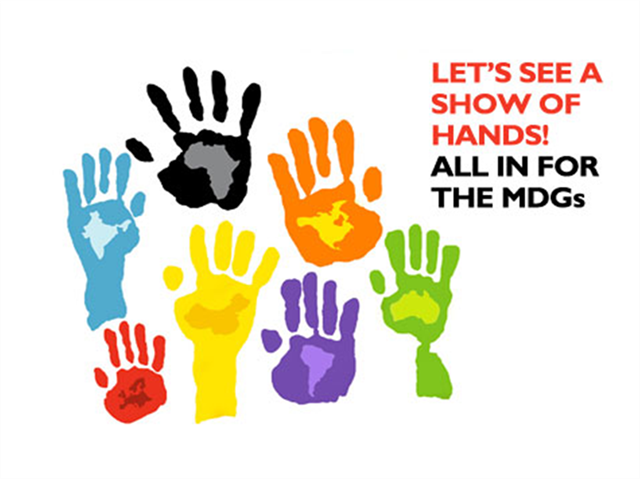In the intricate tapestry of humanity’s spiritual discourse, the Bahá’í teachings illuminate the imperative of justice as a divine principle. The notion of “causing rivers of justice to flow across the earth” is not merely emblematic rhetoric; it is an actionable ideology rooted in profound spiritual truths. The Bahá’í Faith advocates for an expansive and transformative understanding of justice, one that invites not just individual contemplation, but collective action towards a shared vision of societal equity.
At the core of Bahá’í teachings lies the assertion that justice is paramount for the establishment of a just society. The scriptures articulate, “The best beloved of all things in My sight is justice.” This clarion call emphasizes the divine significance accorded to justice, positioning it as an essential pillar of human interaction. The first step towards engendering these rivers of justice within communities is to reframe our perception of justice itself. Historically, justice may have been construed as retribution or a mere balancing of scales. However, in a Bahá’í context, it transcends punitive measures, embodying the principles of equity, fairness, and moral integrity.
This transformative perspective signifies a critical shift; it invites individuals to understand justice not solely as a reactive measure but as a proactive force. The Bahá’í teachings implore adherents to cultivate a sense of vigilance towards injustices, while simultaneously fostering an atmosphere conducive to empathy and understanding. The challenge, therefore, is to diverge from the myopic view of justice as isolationist, and instead, embrace a global, interconnected paradigm. In aligning with this vision, Bahá’ís are encouraged to engage fervently with both local and international communities, establishing dialogue and cooperative endeavors aimed at addressing systemic inequities.
Cultivating rivers of justice requires an intrinsic recognition of the inherent dignity of every human being. The Bahá’í Faith teaches that all individuals are created equal and hold equal rights to justice and opportunity. This fundamental belief can ignite a newfound curiosity regarding the interrelations of justice and inequality in one’s community. It beckons individuals to ask critical questions: How do we define justice in our lives? In what ways can we actively participate in the redistribution of justice? Fostering a collective response to such inquiries can lead to innovative solutions that challenge the status quo.
The Bahá’í approach to justice also necessitates the integration of spiritual practice with social action. It underscores the importance of prayer and reflection as foundational virtues for inspiring change. Through prayer, Bahá’ís can seek guidance and strength to tackle the monumental challenges facing the world today. Such spiritual fortitude is essential in the quest to promote justice, allowing individuals to approach their endeavors with resilience and a sense of divine purpose. The fruits of their labor, ultimately, are manifested through acts of service that reflect their commitment to the greater good.
Moreover, the concept of collective responsibility permeates Bahá’í teachings. In a world beset by social discord and injustice, each individual bears the onus to contribute towards communal well-being. The act of fostering justice is a shared responsibility, one that transcends geographical and ideological divides. The Bahá’í community embodies this principle through various social action initiatives, exemplifying how localized efforts can create ripples of change. These initiatives can range from educational programs aimed at empowering marginalized groups to establishing platforms for advocacy and awareness on pressing global issues such as climate change, poverty, and racial equality.
Another significant aspect of the Bahá’í understanding of justice is its relationship with forgiveness and reconciliation. Effective justice is not inherently punitive; it is transformative. The teachings encourage individuals to practice forgiveness as a pathway to healing. In acknowledging the complexity of human relationships, a just society emerges not from the ashes of retribution but from the embers of reconciliation. These teachings inspire a sense of hope; they remind individuals that our collective journey towards justice is also, fundamentally, a journey towards healing.
The Bahá’í conception of justice is also intrinsically linked with concepts of unity and global solidarity. In cultivating rivers of justice, there exists a pressing need to transcend cultural and ethnic boundaries. This holistic approach is pivotal in understanding that injustices in one part of the world can incite waves of discontent globally. The doctrine asserts that the realization of justice is contingent upon the dismantling of prejudices and the embrace of humanity’s shared identity. This perspective fosters a curiosity about the interconnectedness of global struggles, prompting individuals to recognize their role within the broader human narrative.
Finally, to cause rivers of justice to flow across the earth is to engage in continual learning and unlearning. It requires a commitment to understanding historical injustices and acknowledging their contemporary ramifications. The pursuit of justice is an evolving journey; it demands an openness to diverse viewpoints and a willingness to adapt to new insights. Embracing this fluidity allows individuals to break free from static conceptions, invigorating the quest for justice with fresh perspectives and innovative strategies.
In summation, the Bahá’í teachings invite us to reimagine justice as a dynamic and omnipresent force within our lives and communities. By fostering a commitment to equity, compassion, and proactive engagement, we can collectively instigate the rivers of justice that the world so desperately needs. This transformative vision encourages us not only to envision a just world but also to actively participate in its creation, thereby fulfilling our shared responsibility towards the betterment of humanity. In doing so, we can truly witness justice flowing like rivers across the earth, nurturing all in its wake.
